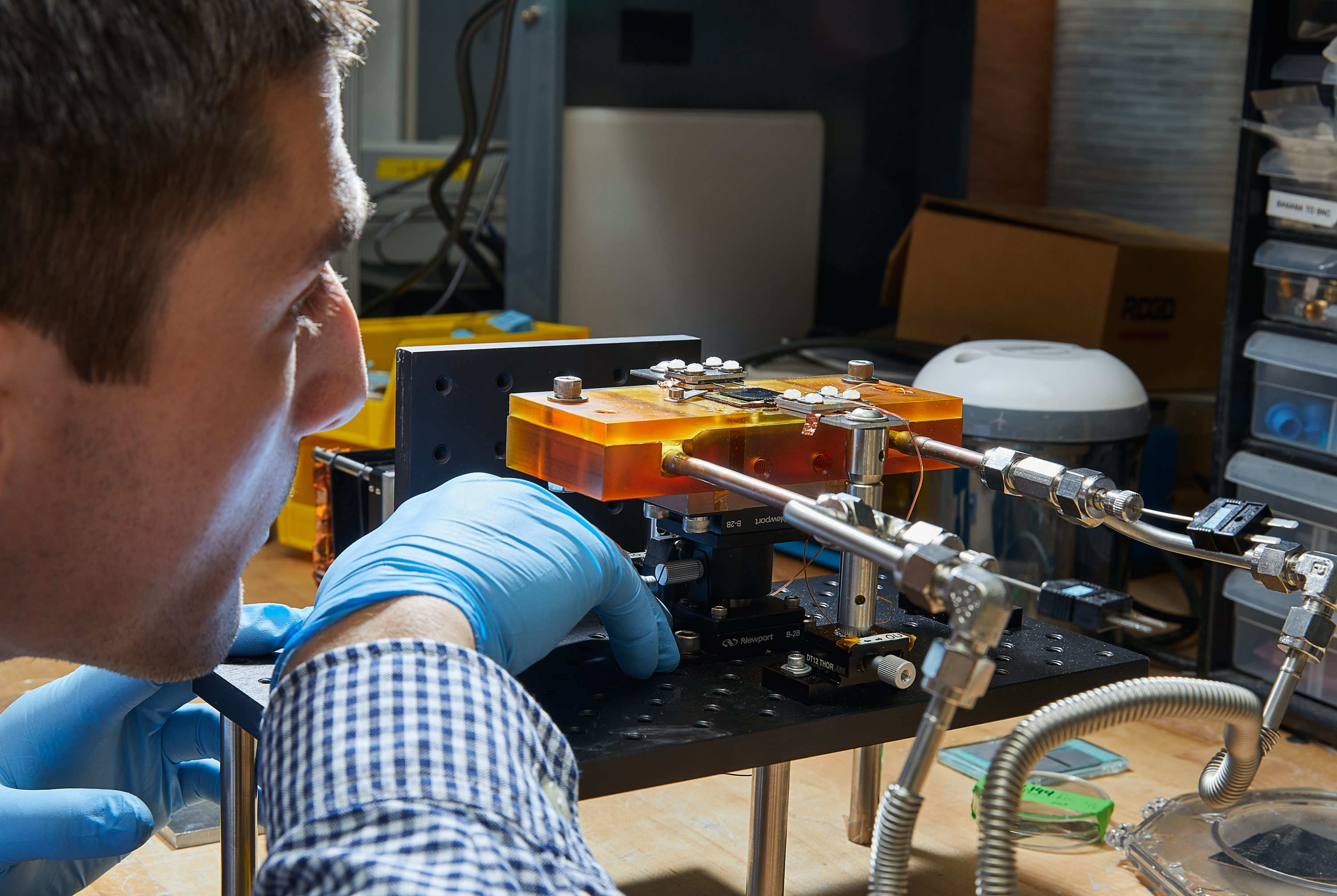Berkeley Lab Program Champions Neglected Energy Entrepreneurs

These are tough days for anyone hoping to commercialize an energy venture, as the federal government looks to slash research funding, and venture capitalists mostly sidestep the sector. But one refuge for energy entrepreneurs is Cyclotron Road, a cross between a fellowship program and startup incubator at Lawrence Berkeley National Laboratory, established to help turn early science into viable companies.
The program, funded by the Department of Energy, is announcing 10 new members on Wednesday. They include Marigold Power cofounder David Bierman, who did pioneering work on solar thermophotovoltaics at MIT (see “Hot Solar Cells”); Microbyre founder Sarah Richardson, previously a postdoctoral fellow at Berkeley Lab, who is focused on engineering bacteria to more efficiently produce biofuels and other products; and Astrileux founder Supriya Jaiswal, a physicist with multiple degrees from the University of Oxford and the University of Virginia, who is developing next-generation semiconductors.
Cyclotron Road was established three years ago to provide a path between academia and industry, helping scientists working on difficult technical problems to survive the “valley of death” that claims many nascent ideas in the field. They provide researchers with a stipend for two years, as well as access to Berkeley Lab equipment and ongoing mentoring.
The six projects from the first year collectively raised more than $18 million in additional research funding or private investments. Argonne National Laboratory in Illinois and Oak Ridge National Lab in Tennessee have recently launched similar programs.
Most observers argue that achieving a sustainable energy system will require advances in biofuels, storage, renewable efficiency, and grid technologies. Yet the federal budget dedicated to research has declined for decades, as have corporate investments in research. Likewise, the venture capital industry, which demands reliable returns on five-year cycles, has proved a poor fit for clean-energy startups, which often require huge up-front investments and involve considerable technical challenges.
Cyclotron Road founder Ilan Gur, whose own battery startup was backed by Khosla Ventures and acquired by Bosch, said the program offers promising energy researchers the additional time they need to develop their technology before looking for funding—and dealing with all the constraints that come with it.
“We’re not giving them a job. At the end of the two years, we kick them out,” says Gur, previously a program director at the DOE’s Advanced Research Projects Agency-Energy. “But if they can mature their idea during that time, they’ll be a lot smarter about how to move that technology into the market.”
Keep Reading
Most Popular
Large language models can do jaw-dropping things. But nobody knows exactly why.
And that's a problem. Figuring it out is one of the biggest scientific puzzles of our time and a crucial step towards controlling more powerful future models.
How scientists traced a mysterious covid case back to six toilets
When wastewater surveillance turns into a hunt for a single infected individual, the ethics get tricky.
The problem with plug-in hybrids? Their drivers.
Plug-in hybrids are often sold as a transition to EVs, but new data from Europe shows we’re still underestimating the emissions they produce.
Stay connected
Get the latest updates from
MIT Technology Review
Discover special offers, top stories, upcoming events, and more.